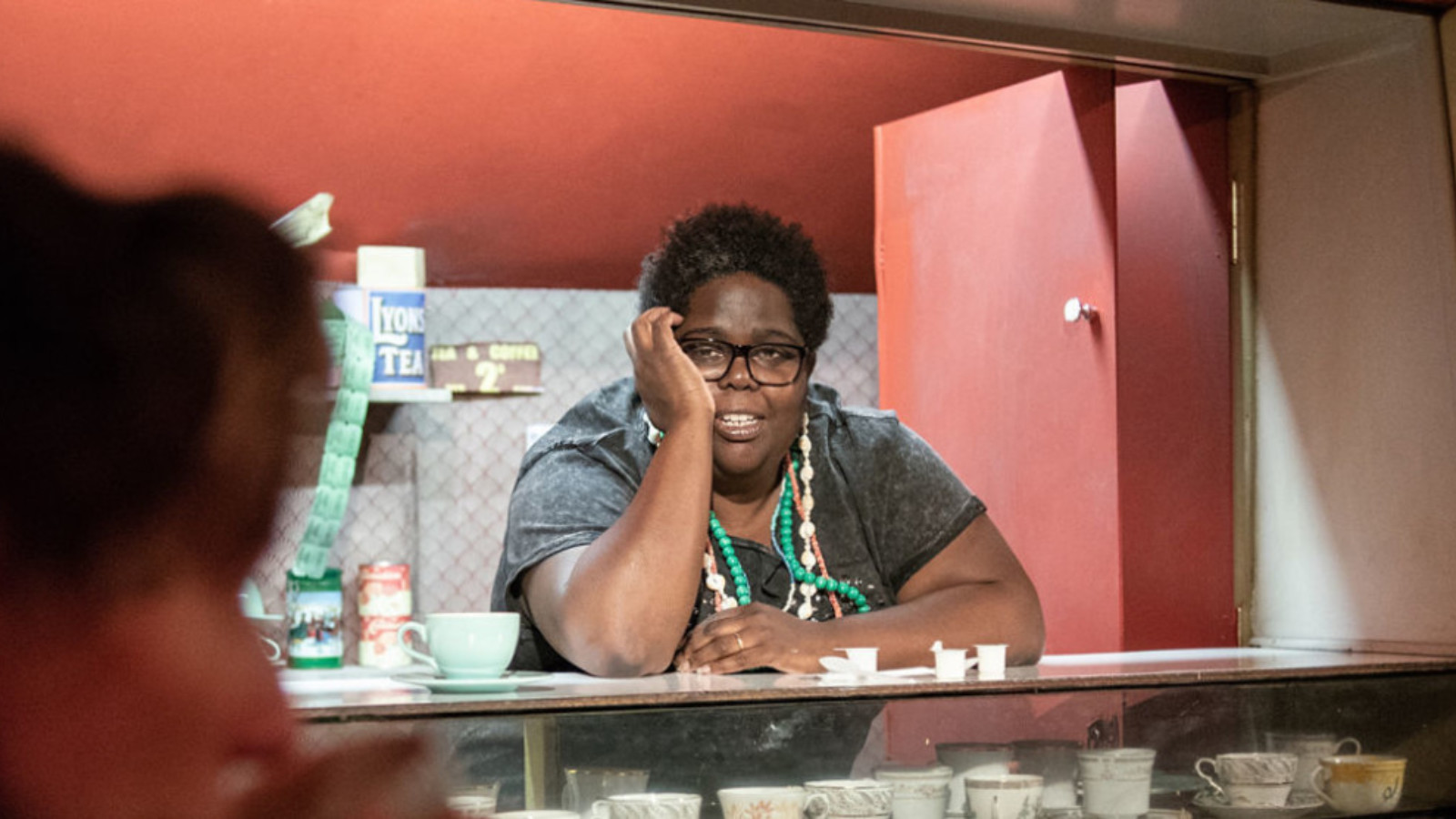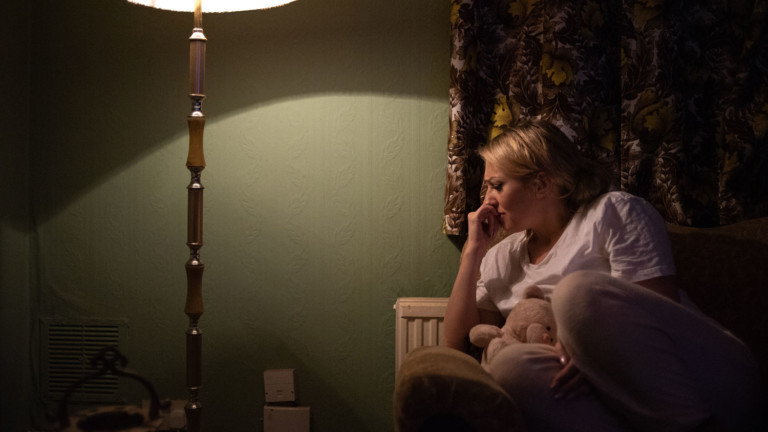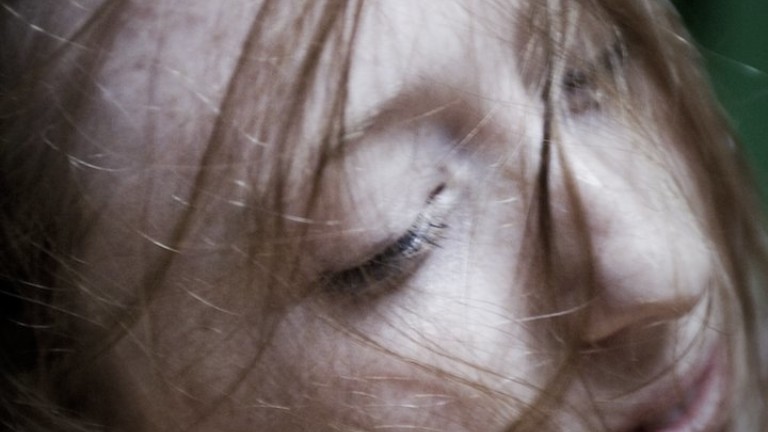In the faded tea bar of the bingo hall in St Helens a woman is pouring us tea. It is hot and strong, and it is served with a question: who would you be if you were not afraid?
This is part of TORCH, an intimate, and endlessly revealing show created over a two-and-a-half year period by ANU Productions with the input of over 30 women living in the Merseyside town of St Helens.
TORCH is a piece which draws with painstaking love on the lives of women living in the town over several generations. It is a piece which does not take place behind the closed doors of a theatre or arts centre, but which is fully visible on the streets and on the concourse of the local railway station. It blurs the boundaries between art and life, artfully mingling the two.
It takes us into an ordinary terraced house where in an upstairs room a woman joyfully tells of the freedoms that WW2 brought to her, we are ushered into a kitchen where it is 1984 and the Miners’ Strike is testing friendships, and into the front room where it is the present and a woman weeps because her children have been taken into care. It gives us time to reflect on what we’ve seen and our own lives, and it does it through theatre, tea and empathy.
There is often no better place to begin to make change than over a cup of tea. Tea goes hand in hand with making time and listening and taking care. About creating mutual trust. All are at the centre of Heart of Glass, the innovative agency for collaborative and social arts practice which is becoming embedded in the fabric of life of the Merseyside town of St Helens.
St Helens is a town whose history is in mining and making. It was built on coal (an industry that endured until the early 1990s) and for generations it thrived on the making of glass. But like many northern towns it has been in industrial decline for many years resulting in high unemployment, poverty and a breaking of the social ties that bind people together. Lives have shattered.
Heart of Glass’ profound proposal is to bring the town together and get it making again, although in this instance what the town is making is art. An art which is hyper-local, genuinely collaborative, and which helps people have both the agency and the opportunity to explore their own lives and make change within themselves and their communities. It is a form of gentle activism, and one that takes its time and takes care. It doesn’t try to coax people into taking part, it makes the offer and lets them decide for themselves.
If many an arts funder has come up with the idea that building an arts centre in a town may increase arts engagement and bring about other social benefits, then Heart of Glass offers a far more radical vision.
It is one which asks what happens when you turn an entire town into an arts centre, a place where every wall can be a canvas and every space a stage?
A place in which people’s lives are reflected back to them through long term, fully embedded arts projects? What effect does it have on artists and their collaborators? What happens when people of all ages are empowered to explore their own creativity? Can you change the entire narrative that a town has about itself? Can an arts organisation be generous enough to ensure it is part of the story, not the story?
With projects such as Your Name Here in which St Helens residents were invited to nominate a local person after who a park should be named, to Brass Calls - a collaboration between French and Mottershead and the local Haydock Brass Band - Heart of Glass has begun to explore those questions. It already understands that change happens from the ground-up and that it is through making local connections and local relationships that real change happens. That takes time and lots of cups of tea.
Louise Lowe, the artistic director of ANU, has drunk hundreds of cups of tea with local women from midwives to local councillors for the making of TORCH, and Mark Storor is doing the same during a 12-year project (now into its third year) working with children, young carers, the police and particularly with older men.
A 12-year project not only represents an act of faith in a world where arts funding is only awarded either for short term initiatives or in four-year cycles, but in the case of Storor’s project with middle aged men it represents an act of faith in the future in a town where the mortality statistics for older men are grim. In effect they are trying to out-run death. Three years in and they are succeeding: nobody involved has died.
Storor says that he is not interested in reflecting negative statistics back at the town, but he is interested in creating sustained relationships with people. For him that means moving to St Helens to live side by side with them.
This is a million miles away from the kind of participatory arts projects that sees a bunch of artists being funded to parachute into a place they have never visited before, make a piece with local people and then get the first plane or train out and never return. Instead it is about understanding that trust only comes when you have built a broad, deep and sustained relationship over a period of time and many cups of tea. This is not just an art practice but a way of life, and one that like much of Heart of Glass’ work is focussed on process not project, because it is in and during the process that change really happens.
A great deal of art which comes under the banner of collaborative art claims inclusivity and agency for all involved but in reality, only reproduces the power structures of traditional arts practice and values the contribution of the professional artist over the contribution of the community.
Heart of Glass loves and cherishes professional artists whether they are local or international. But it also understands, as its director Patrick Fox says, that the people of St Helens are its most precious resource and “our future is bound up with theirs.”
The aim over the next 10 years is to make St Helens a nationally and internationally recognized centre for socially engaged artistic practice. But what Fox and his team know is that Heart of Glass’ success will be measured not by what it does for St Helens, but the impact that St Helens and its community has on Heart of Glass and its mission and process.
In the St Helens’ bingo hall long after TORCH has finished we sip our tea and we talk about our lives. Complete strangers suddenly brought together by the stories we have witnessed and shared. It is in these moments that change begins to happen.


 News
News
